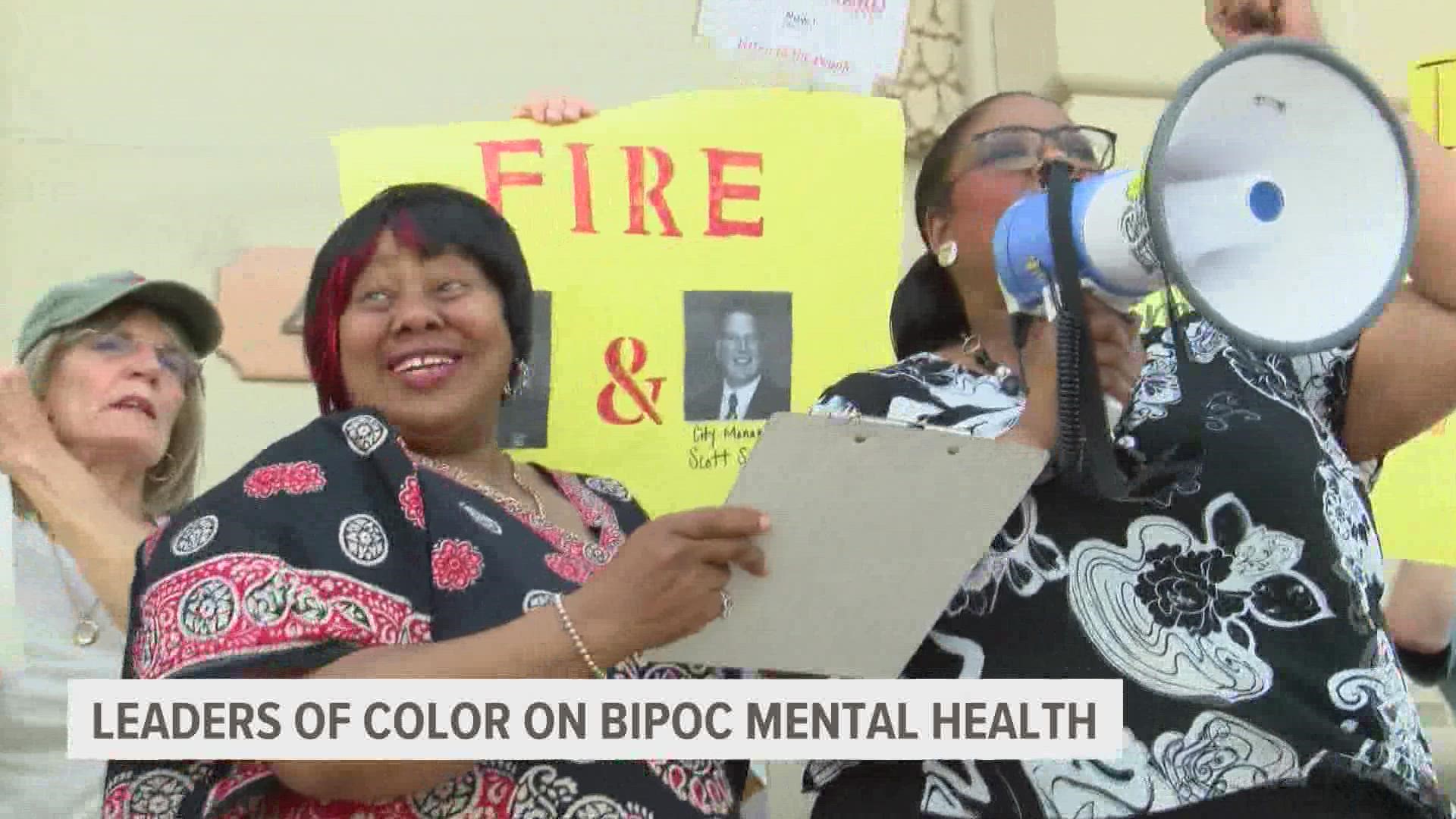DES MOINES, Iowa — Lori Young is a member of Iowa Citizens for Community Improvement (CCI). She spends her weeks advocating for people of color, both on and off the clock. Although she loves what she does, the work is emotionally draining at times.
"It's 24 hours talking [and] thinking about racial justice for me, and it does get heavy sometimes," Young said. "My faith is very important. I pray. I meditate. And I try to turn those things off."
Young's problem is not unique. Even as public awareness about mental health rises, there are few conversations about how mental health impacts BIPOC communities.
That's why July was named National BIPOC Mental Health Awareness Month in 2008, in an effort to open up more discussions on the issue.
Young's teammate at CCI, Christopher Robinson, said that as a person of color, finding community that is willing to understand and support the mental toll of advocacy is essential.
"It's not a walk that you can really walk by yourself," Robinson said. "You can try to walk it by yourself, but it's going to be an awfully tough walk by yourself, you need people to help you to make that journey."
Joe Enriquez Henry, political director of the League of United Latin American Citizens, said there are some disparities when you compare mental healthcare accessibility in marginalized communities to accessibility within white communities.
"When we look at the numbers, it's in the mid 40s to high 40% within the white community, but when we look at the Latino community, it's around 35 to 37% of those within our community have been able to access mental health treatment," Henry said.
Henry also noted that stereotypes passed on for generations can hinder diverse communities motivation to speak up about their mental wellbeing.
"There is a stigma when somebody from a diverse community. . .might have a mental health issue," Henry said. "We are led to believe that we do not have that right to seek treatment, whereas in the white community, you know, it's accepted."
Laurel Clinton with Iowa CCI said being involved in the group has helped improve her mental health tenfold, just by being around likeminded individuals.
"They helped me in more ways than I cared or have the words to say [to] get through the angst and anxiety that goes with being a racial justice fighter," Clinton said.
Iowa CCI members say advocating may not always be a walk in the park mentally, but accomplishing big goals like the anti-racial profiling ordinance in 2020 makes the trials and tribulations all worth it.

